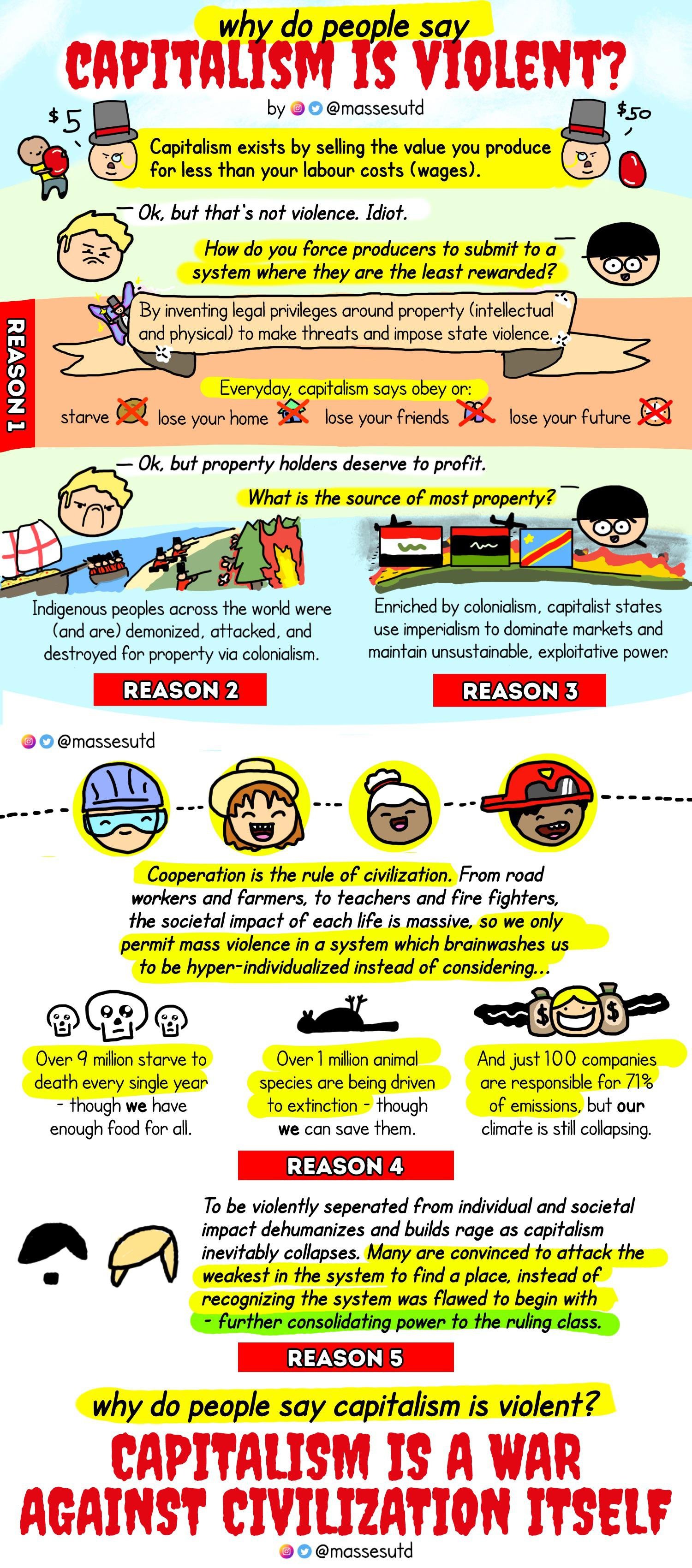Leftism
Our goal is to be the one stop shop for leftism here at lemmy.world! We welcome anyone with beliefs ranging from SocDemocracy to Anarchism to post, discuss, and interact with our community. We are a democratic community, and as such, welcome metaposts that seek to amend the rules through consensus. Post articles, videos, questions, analysis and more. As long as it's leftist, it's welcome here!
Rules:
- Absolutely no fascism, right wing extremism, genocide denial, etc.
- Unconditional support of authoritarians will not be tolerated
- Good faith discussion about ideologies is encouraged, but no sectarianism
- No brocialism/sexism
- No ableism
- No TERFs/ anti-LGBTQ+ rhetoric
- No racism
- No trolling
- No insults, dunking, or personal attacks
- No posting of misinformation, disinformation, or fake news
- Mods have final say
Posting Expectations:
- Comics/memes/shitposts/propaganda are only allowed on weekends
- Try to avoid liberalism unless discussing electoral politics. Even then, try to focus on tactical agreement towards leftist goals
- Only one meta post seeking consensus per person per day
- Posts about a particular ideology are ok, but remember the rules above
- Remember that there is no “right way” to implement leftist theory. This rule does not prevent academic criticism.
- Try to avoid extremely sensitive topics unless approaching them with appropriate care for intersectionality. Use your best judgement, and be prepared to provide respectable sources when having these discussions. Wikipedia is not an acceptable source in these cases.
- Post titles must be meaningful and relevant, except on weekends
Sister Communities:
!abolition@slrpnk.net !antiwork@lemmy.world !antitrumpalliance@lemmy.world !breadtube@lemmy.world !climate@slrpnk.net !fuckcars@lemmy.world !iwwunion@lemmy.ml !leftymemes@lemmy.dbzer0.com !leftymusic@lemmy.world !privacy@lemmy.world !socialistra@midwest.social !solarpunk@slrpnk.net Solarpunk memes !therightcantmeme@midwest.social !thepoliceproblem@lemmy.world !vuvuzelaiphone@lemmy.world !workingclasscalendar@lemmy.world !workreform@lemmy.world
view the rest of the comments

Private ownership of the means of production leads to division of society into classes with mutually antagonistic interests, boundless accumulation of private wealth, and workers being deprived of the full value of their labor.
Such are the inevitable structural consequences following from the protection of private property.
They cannot be wished away. If you accept private property, then you also accept a fantasy, from not understanding the material criticism of capital as a totalizing societal system, or you accept the consequences as I have identified them.
Socialism, and equivalently communism, is the political movement seeking the abolition of private property, and the class antagonisms that it requires and produces, toward the development of a classless society, in which the public asserts direct cooperative control over the economy.
Some movements have invoked the strategy that substantial state control over the economy would characterize a transitional stage occurring before the economy would be directly managed by the public.
However, socialists broadly reject state control of the economy as an ultimate objective, because state bureaucracy simply reproduces the same kinds of class antagonisms characteristic of capitalism, placing those within the state against those outside.
Anti-statist tendencies of socialism seek for the public to develop direct control of the economy without the control of the state.